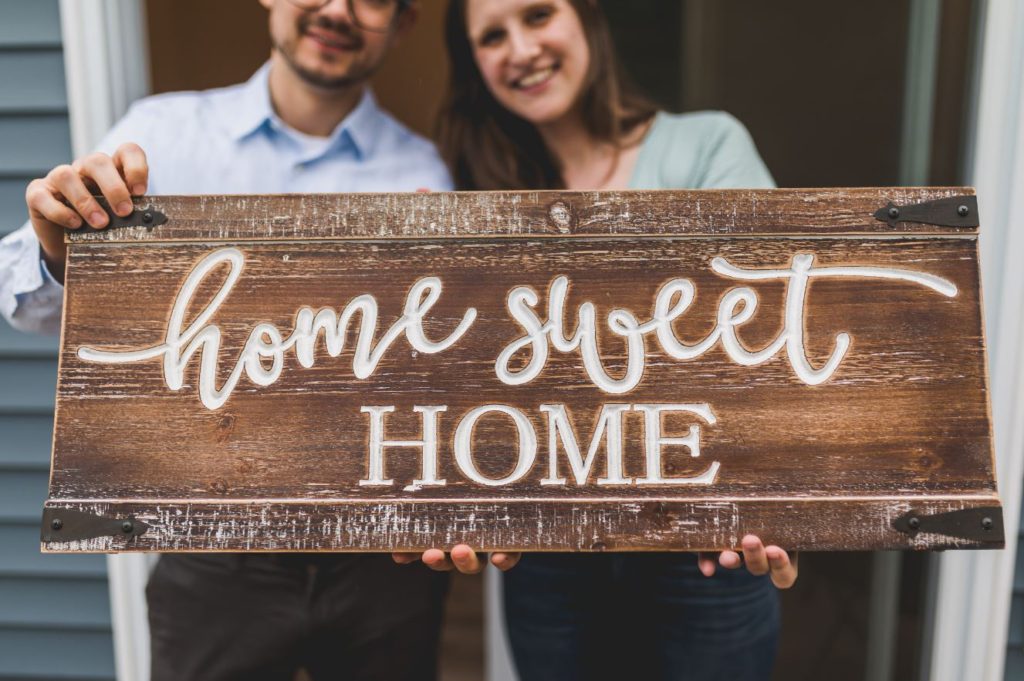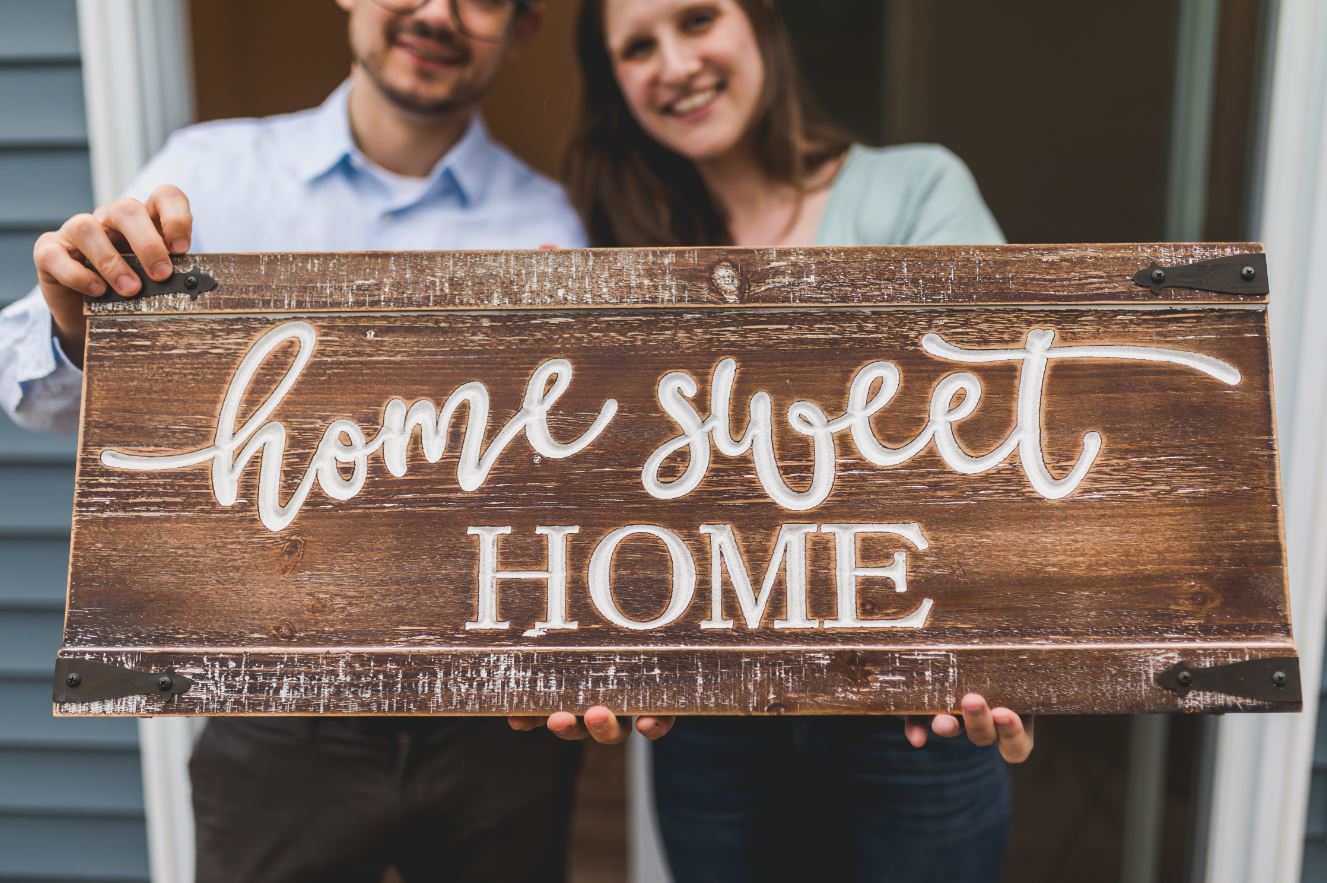
Buying a new construction home is a thrilling experience because you get to see your dream home come to life. Many of the steps involved in buying a new construction home are similar to those involved in buying a resale property, such as signing a contract and obtaining financing.
However, because the home is brand new, there are a few more procedures to not only complete the sale, but also to personalize it, such as picking options and meeting with the builder for walk-throughs at various phases of the construction process.
While the processes differ by builder, here are common milestones in the new construction home buying process.
Purchase Agreement
After you’ve picked which home/homesite you want to buy, you’ll need to sign a contract with the builder. Some builders will accept lot hold reservations, while others will not and will proceed straight to the purchase agreement. Because the purchase agreement is generally a lengthy document, make sure you read it carefully before signing. A ratified contract is one that has been signed by both parties and holds both the builder and the purchaser liable. At this point, a money deposit is usually requested. The deposit could be divided into two parts: earnest money and options.
Options for Financing a Newly Constructed Home
If you’re purchasing a spec or semi-custom home in a major development, you’ll require a new construction loan.
In this situation, you should apply for a mortgage before the property is built and show a loan pre-approval to the builder to ensure the purchase. When the house is ready to move into, the loan closes.
You must either get pre-approval for a loan or demonstrate that you can cover the cost of the home with your current assets before signing the contract. Builders usually collaborate with preferred lenders who are familiar with the process and can offer competitive rates. Working with recommended lenders has the potential to save money on closing costs and improve communication between all parties.
You’ll need a construction loan if you’re doing a bespoke build. The mortgage functions as a line of credit in this situation, enabling disbursements from the approved amount as the construction advances. You’ll make interest-only payments throughout this time. The loan will be converted to a conventional mortgage after the construction is completed.
If you’re purchasing a home in a new development, the developer may be able to recommend a lender who is familiar with the project. Although this is convenient, you are not obligated to use that lender. You have the option to shop around for the best mortgage rate and terms, and you should do so.
Another advantage of buying a new construction house is that lenders may offer to lock in rates for longer periods of time. If interest rates rise in the future months, your loan will be protected until your closing date, which might be months away.
Choose your options
Selecting alternatives and designing the home with your preferred flooring, cabinets, countertops, and other features is part of the pleasure and excitement of buying a new home. You will meet with the builder to select the options you want in your home while it is being built. This includes both structural and finish alternatives (such as converting an open study to a bedroom) (such as color and type of cabinets and countertops).
One of the benefits of buying a new home is that you get to choose all of the amenities and finishes, allowing you to tailor the property to your lifestyle and preferences. This could encompass everything from the amount of bedrooms and bathrooms to whether or not to incorporate extras like an outdoor wet bar or built-in grill on the terrace.
Inquire about improvements and amenities with the builder. A clubhouse, a health and fitness center, or a gated entrance are examples of amenities that benefit the entire community. Upgrades are extra features or goods that you pay extra for in order to improve your property, such as different types of flooring or appliances.
Get a feature sheet for the home line you’re interested in and read it thoroughly before comparing features. Find out what’s included in the home’s base price.
Ask questions and take notes if you don’t comprehend what the builder is presenting. There are no such things as stupid inquiries. You could lose money if you don’t know. Upgrade decisions should be made early in the process, as each modification costs money. Have a clear notion of what you require and desire.
Home Walk-Throughs and Construction Timing
Because of weather, vendor delays, and waiting for procedures such as permit clearances, the timing for building a home can be unpredictable. Building a home takes three to seven months on average, depending on size, but it’s not uncommon for it to take nearly a year if there are any delays.
There should be a series of walk-throughs with the builder during the construction phase. Pre-construction, pre-drywall, and pre-settlement are examples of these. During your pre-drywall walk-through, take “inside the walls” photos or video so you know where there is extra blocking, wiring, pipes, and so on for when you start hanging TVs and artwork.
Inspectors should visit the home during the pre-drywall stage, thus the pre-drywall walk-through is an excellent opportunity for the builder and the inspector to discuss the inspector’s report. In reality, you should receive two when buying a new home: one before the walls are closed and one after. It’s significantly less expensive to remedy problems like electrical or plumbing before putting up the drywall. The pre-settlement walk-through is similar to the last walk-through of a resale transaction in that it is your final chance to point out any potential faults. If the home inspections go smoothly, you should be on track for a successful closing, just like any other home purchase.
Your New Home’s Closing
Finally, your new house is complete, and the closing process begins! Closing usually takes place at a title company’s office. The title firm verifies that the loan has been granted, that all required paperwork has been signed, and that the buyer’s ownership has been documented. There are a few things you’ll need ahead of time (such an insurance policy or a cashier’s check), so make sure you have everything you’ll need.
Home Warranty for New Construction
The warranty services are another advantage of buying a new build home. Several months following closing, a walk-through is usually made to check in with the homeowner and solve any issues. Although it varies, most builder guarantees cover materials and craftsmanship for one to two years, and structural aspects for up to ten years.
It’s critical to understand the process and ensure that all of your questions are answered, whether you’re buying a new construction house for the first time or the first time in a long time.
Call 732-905-0005 or Contact Us to Discuss Your Project
Additional Resources
- This is a great article if you’re wondering about Things to Know Before Closing on a New Construction Home.
- Where To Buy Land To Build A House In New Jersey
- This article provides insight about Who are the best custom home builders at the Jersey Shore.
- The Pros And Cons Of Spec Houses
- Should You Buy Waterfront Property in New Jersey?
- Affordable New Homes! Mortgage Mythbusting in New Jersey


